Amanda Gorman's musical, poetic uprising call to ring in and harmonize with the strumming song of freedom and change.
In her guided walk into spaces unknown: those near and far, those between us and those deep within, Rebecca Solnit gently advises us to "Leave the door open for the unknown, the door into the dark." As we unfold and unclench ourselves into a world that has barely yet begun, a world that certainly hasn't taken shape or defined its limits, stretched thin with pain and expanded by joy, can we hold the door open to the dark?
We do this, Solnit continues, because "The things we want are transformative, and we don't know or only think we know what is on the other side of that transformation."
As we try to adjust to this looming but not ominous, unknown future, take solace in that you are neither alone nor unguided. Take succor in luminaries like Solnit, precious hearts like poet Mary Oliver and Buddhist teacher Pema Chödrön, or the championing warmth of poet and activist Jason Reynolds. And, of course, the uplift of visionary poet and performer Amanda Gorman (born March 7, 1998), who holds our hands, cradles our souls, and lifts our lids to what awaits.
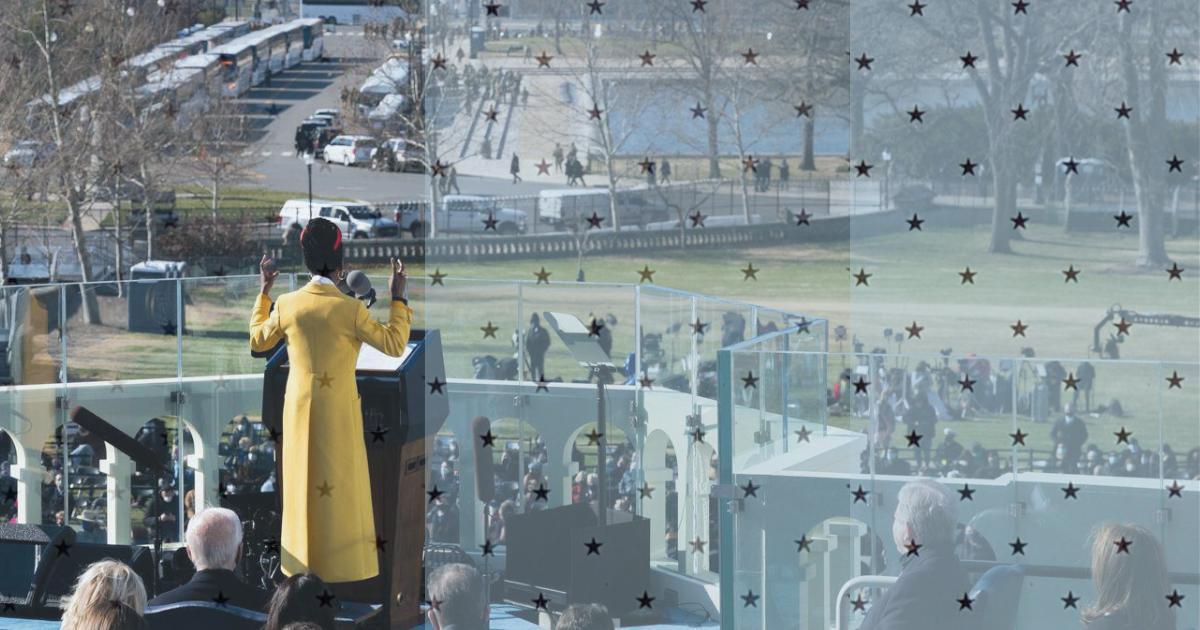 Amanda Gorman delivering her poem "The Hill We Climb" at the 59th Presidential Inauguration at the U.S. Capitol Building, January 20, 2021.
Amanda Gorman delivering her poem "The Hill We Climb" at the 59th Presidential Inauguration at the U.S. Capitol Building, January 20, 2021.We, the successors of a country and a time
Where a skinny Black girl,
Descended from slaves and raised by a
single mother,
Can dream of becoming president,
Only to find herself reciting for one.
FROM AMANDA GORMAN'S "THE HILL WE CLIMB"
Gorman's career (such a puny word for Gorman's life so far, what else should we call it?) began in our consciousness with her inaugural poem, "The Hill We Climb," gifted to all of us during the 59th Presidential Inauguration. She continues to lift and guide in Change Sings A Children's Anthem, a beautifully illustrated children's book, artwork done by Loren Long, which combines song, verse, and imagery to distill what has been happening in America - change and its constant handmaiden, fear - into a straightforward narrative.
I can hear change humming.
In its loudest, proudest song.
I don't fear change coming,
And so I sing along.
[...]
I'm a chant that rises and rings.
There is hope where my change sings.
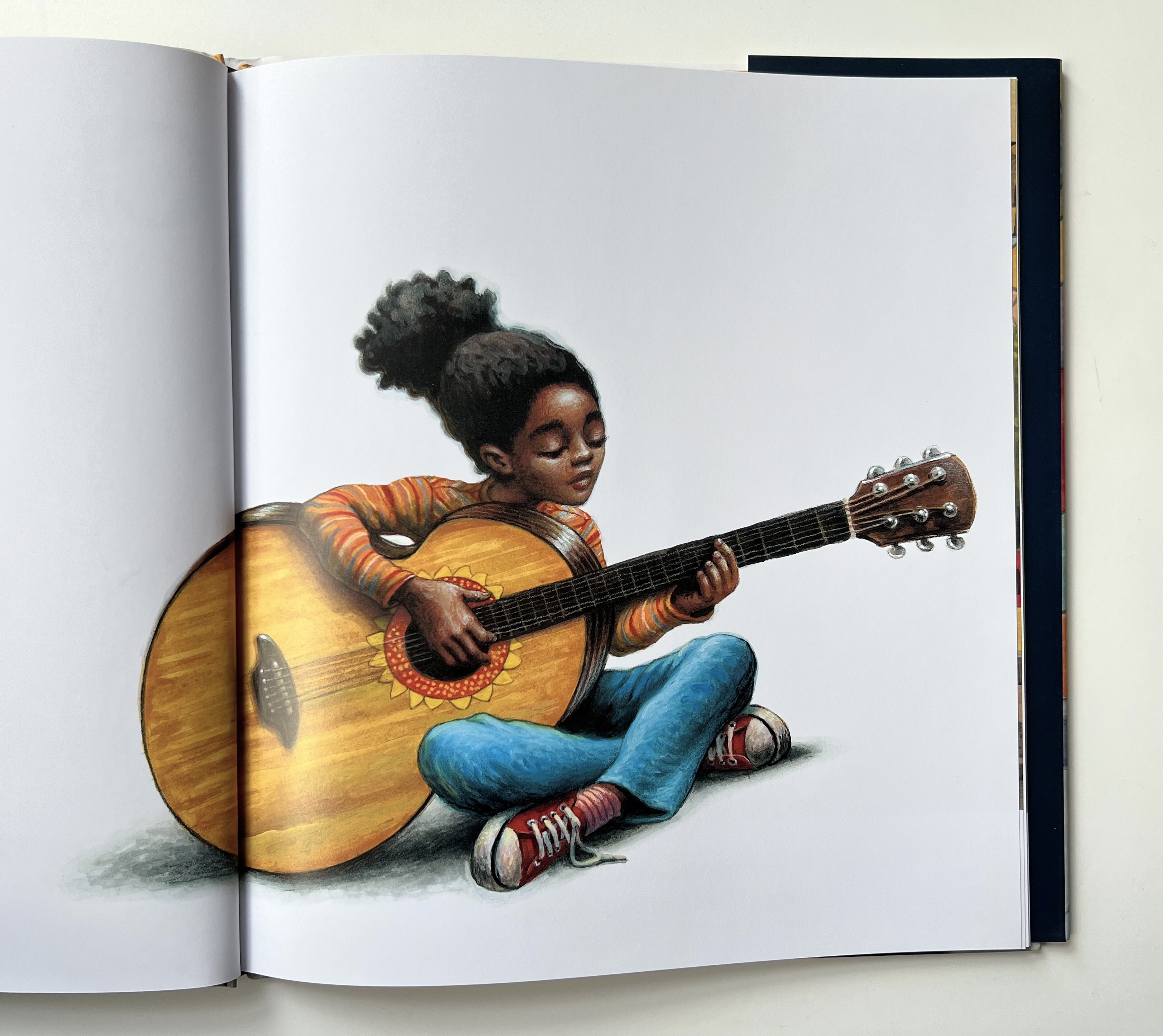
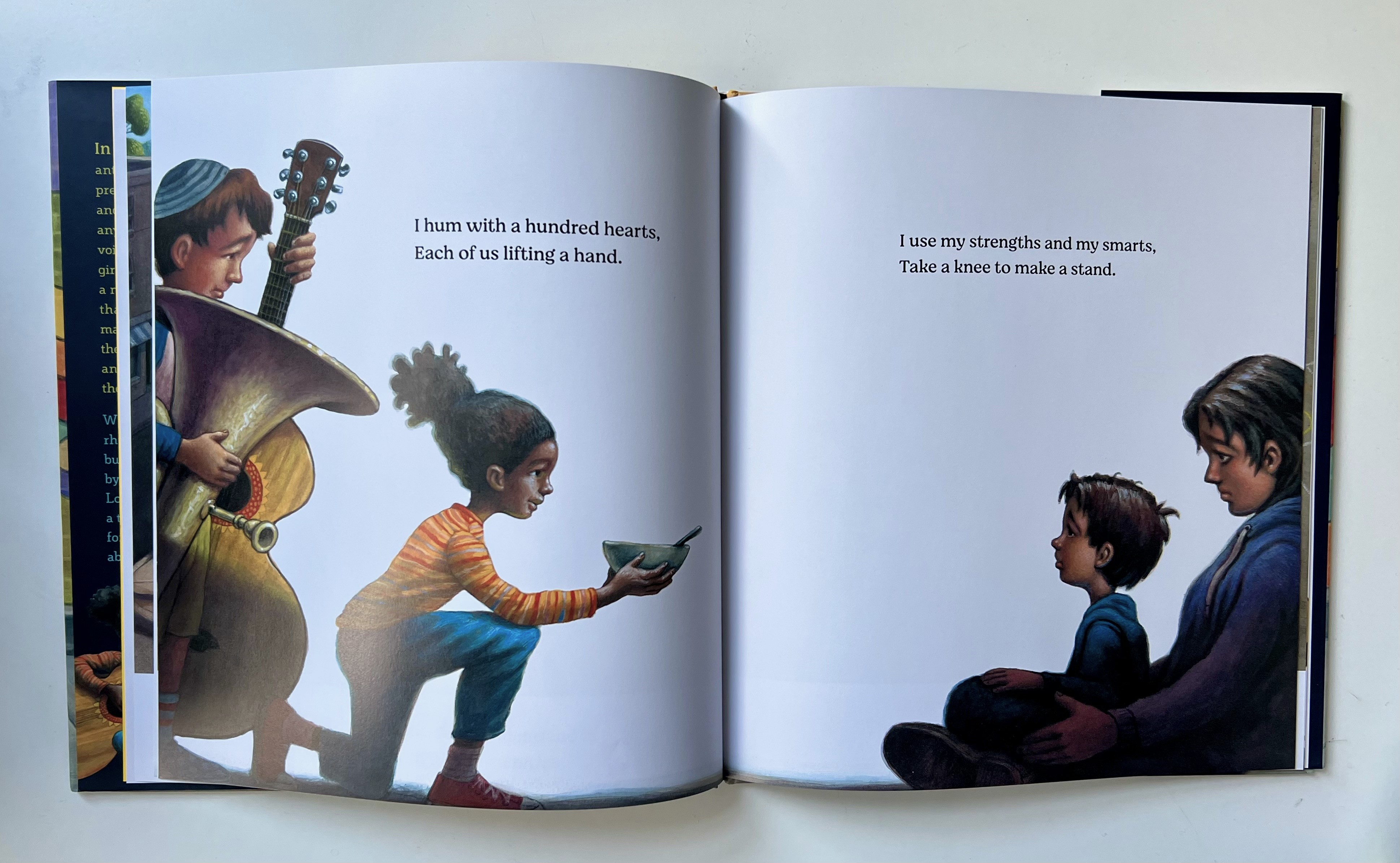
The artist sees herself as an agent of change, a musician, and a high-touch helper of people in need or people marginalized. She is gentle and peaceful, offering a rebellion of joy rather than violent upheaval. What if we imagined change as good? What if we expected the best from it? What if we stepped in line with many people who thought the same?
I scream with the skies
Of red and blue streamers
I dream with the cries
Of tried-and-true dreamers.
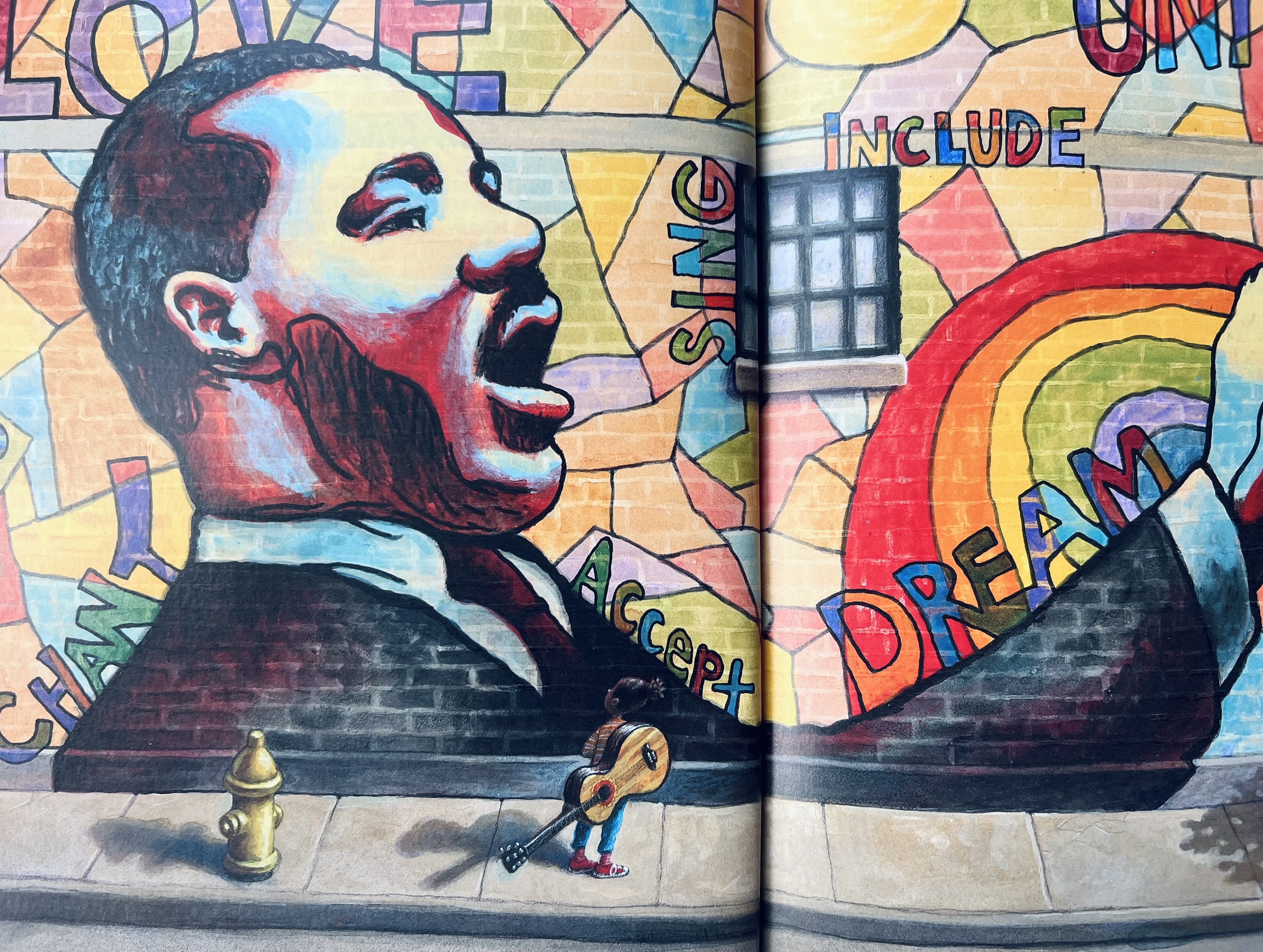 "You deplore the demonstrations taking place in Birmingham," wrote Reverend King in a letter to those who opposed him, "But your statement fails to express a similar concern for the conditions that brought about the demonstrations."
"You deplore the demonstrations taking place in Birmingham," wrote Reverend King in a letter to those who opposed him, "But your statement fails to express a similar concern for the conditions that brought about the demonstrations."Gorman continues:
Though some don't understand it
Those windmills of mysteries,
I sing with all the planet,
And its hills of histories.
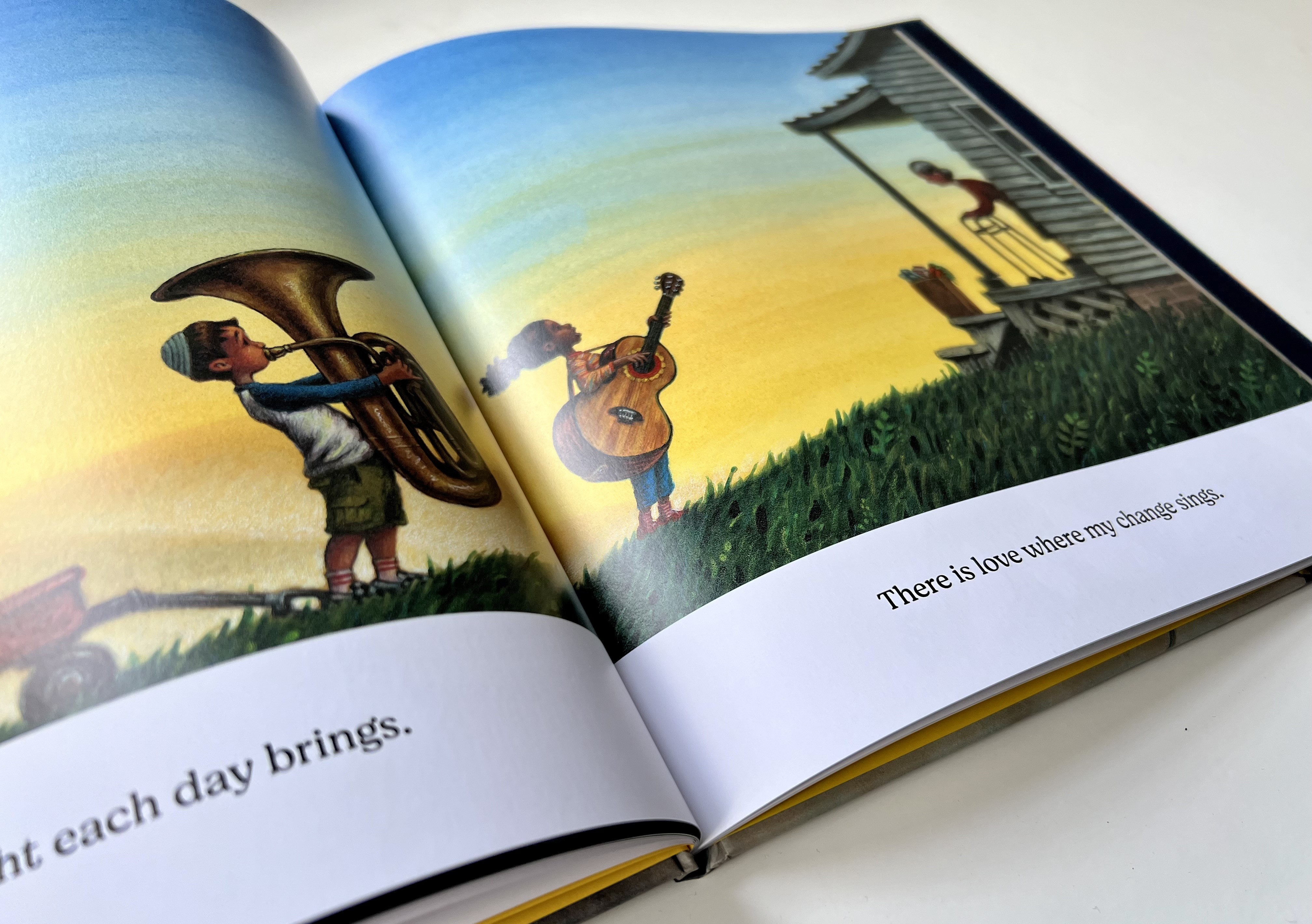
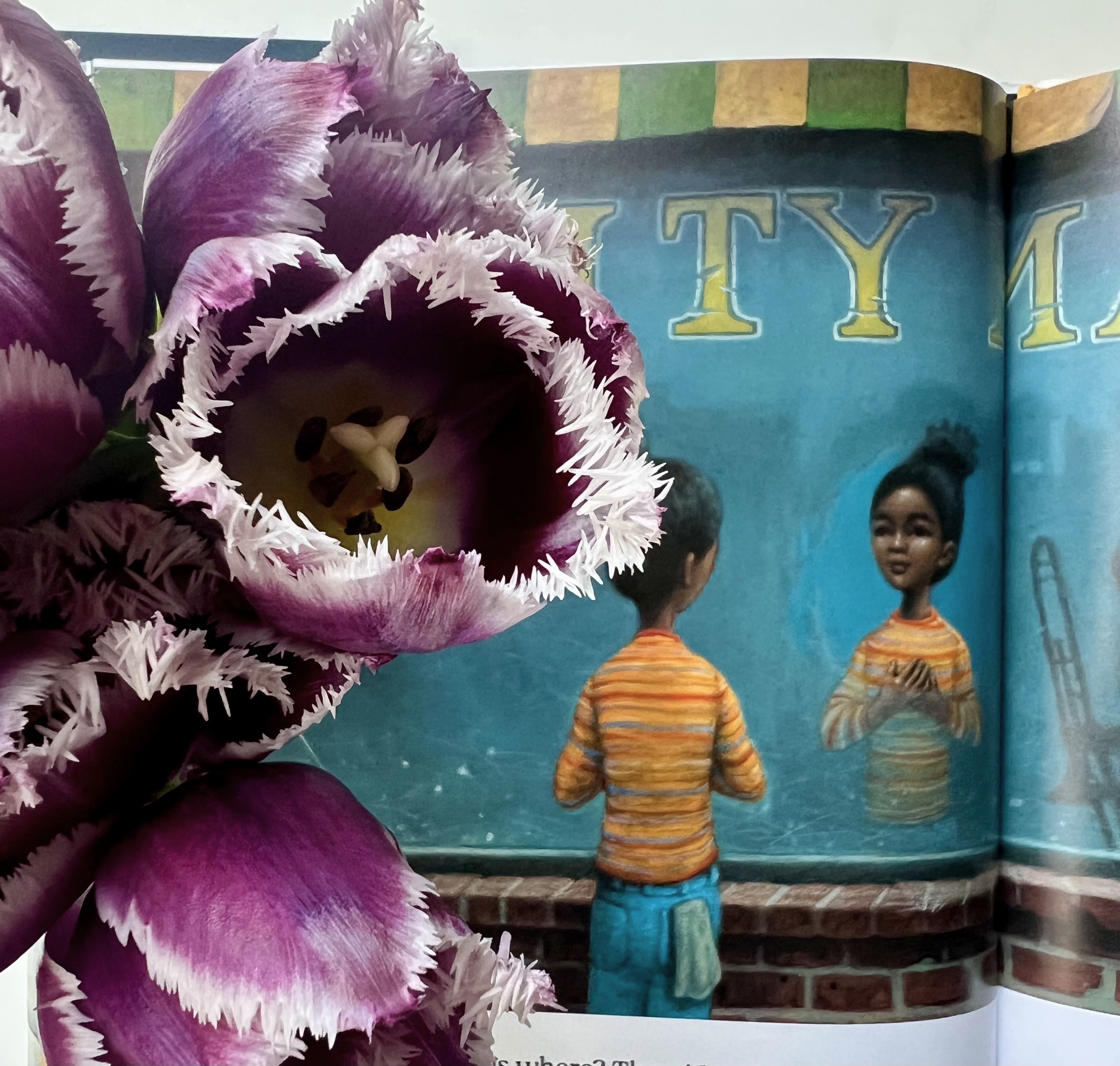 "Change sings where? There! Inside me."
"Change sings where? There! Inside me."Change sings where? There! Inside me.
Because I'm the change I want to see.
as I grow, it grows like seeds.
I am just what the world needs.
I'm the voice where freedom rings.
You're the love your bright heart brings.
In this short book, Gorman joins the chorus of a long line of change agents who begin their journey internally, from Walt Whitman's almost 200-year-old anthem of self to James Baldwin's sermon on the dehumanizing act of oppression to George Saunders' simple but compelling speech on legacy and kindness, told through a tale of his failings. Americans have a tradition of role-modeling themselves, not in a grand or scheming way (although we also do that in droves), but in a humbling, diminishing way. It is a precious balance to strike, and Gorman nails it.
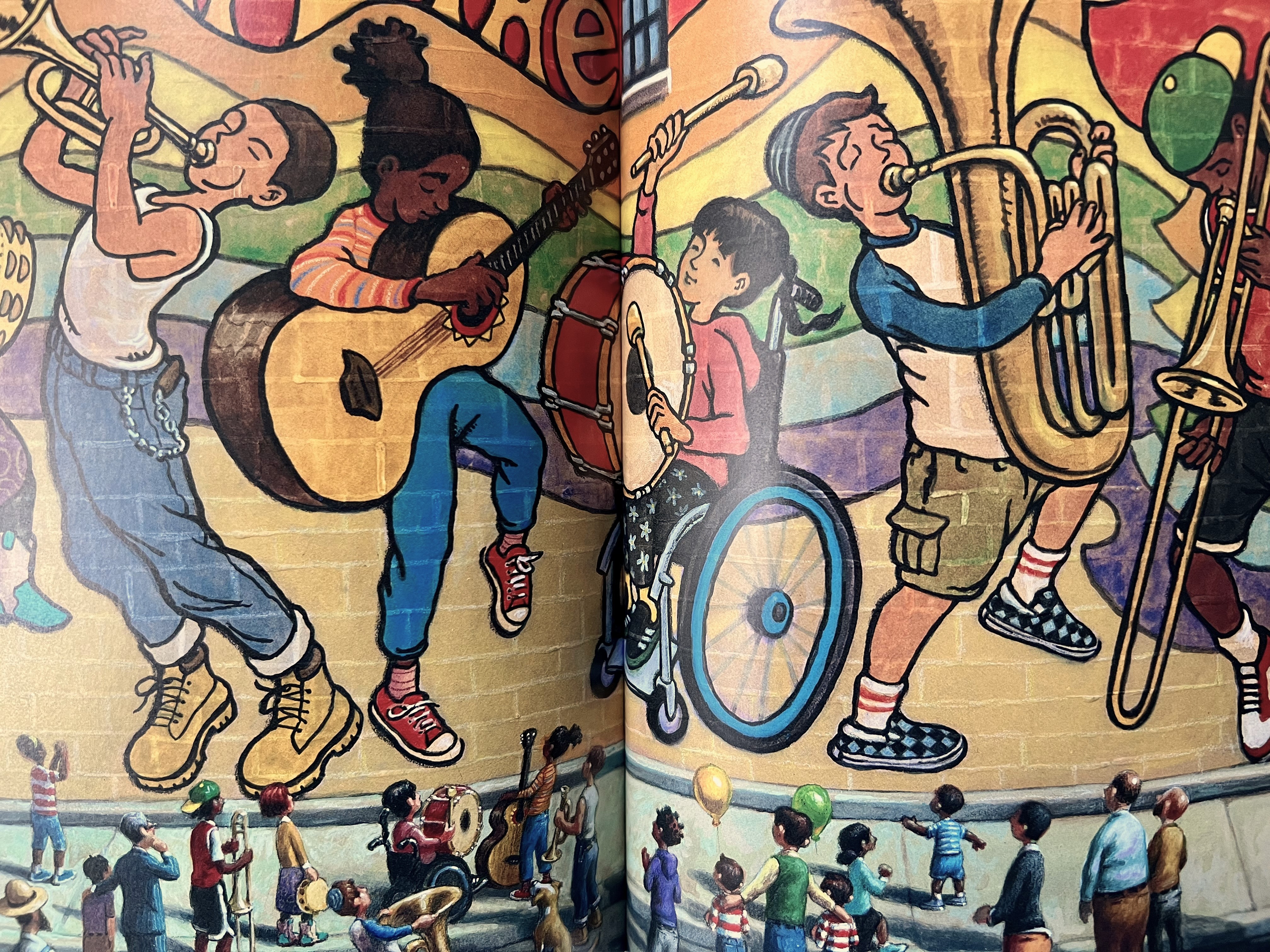
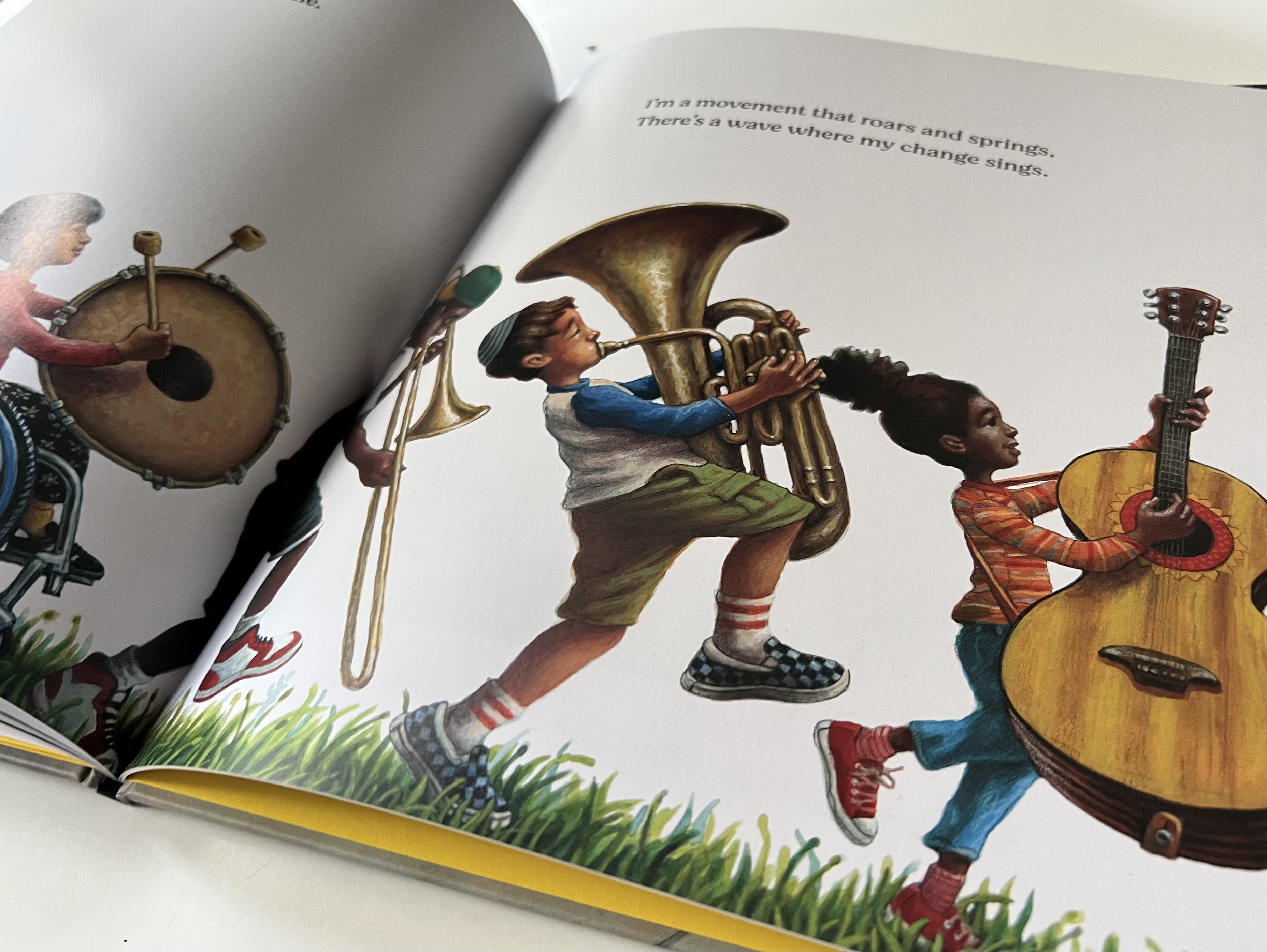
Gorman sees us - quite honestly, we might all agree - as unformed, undone, unkept, utterly exhausted. Equally, she sees us held together as one, a connective brotherhood with great possibility. From her much-beloved poem:
And yes, we are far from polished,
far from pristine.
But this doesn't mean we're striving to
form a union that is perfect.
We are striving to forge our union with purpose,
to compose a country committed
To all cultures, colors, characters,
And conditions of man.
And so we lift our gazes not
To what stands between us,
We close the divide,
Because we know to put our future first,
we must first put our differences aside.
From Amanda Gorman's "The Hill We Climb"
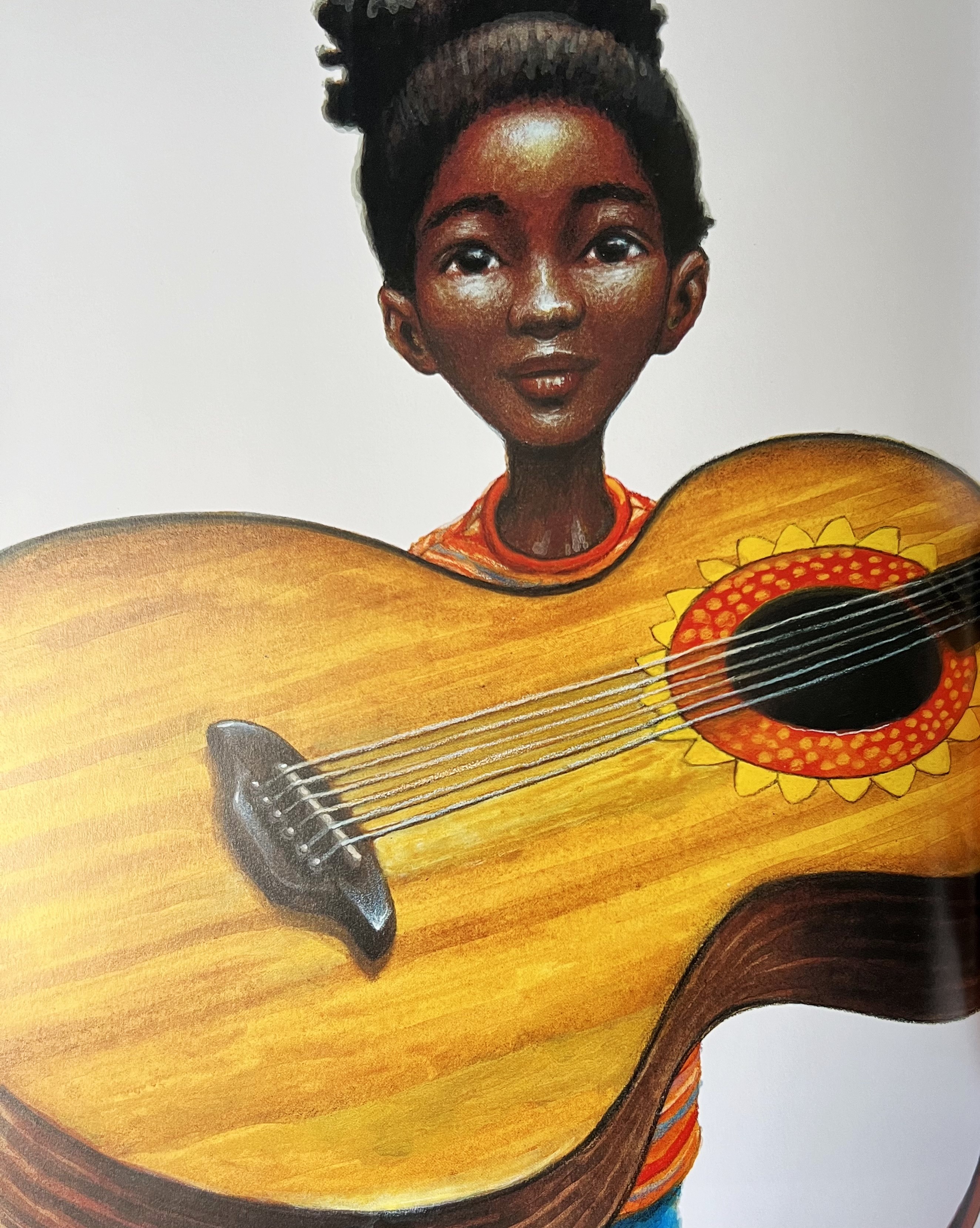 "We all hear change strumming; won't you sing along?
"We all hear change strumming; won't you sing along?Warm yourself in the brightness of Gorman's illuminated America: "The new dawn blooms as we free it, For there is always light, Only if we're brave enough to see it, If only we're brave enough to be it." And take you into this unknown, unchartered new world with Charlie Mackey's vision where kindness and friendship define goodness, my look at how we right ourselves in an ever-capsizing world, and Penelope Lively and Wislawa Symborzka on the anchoring, stabilizing ballast of memory.


